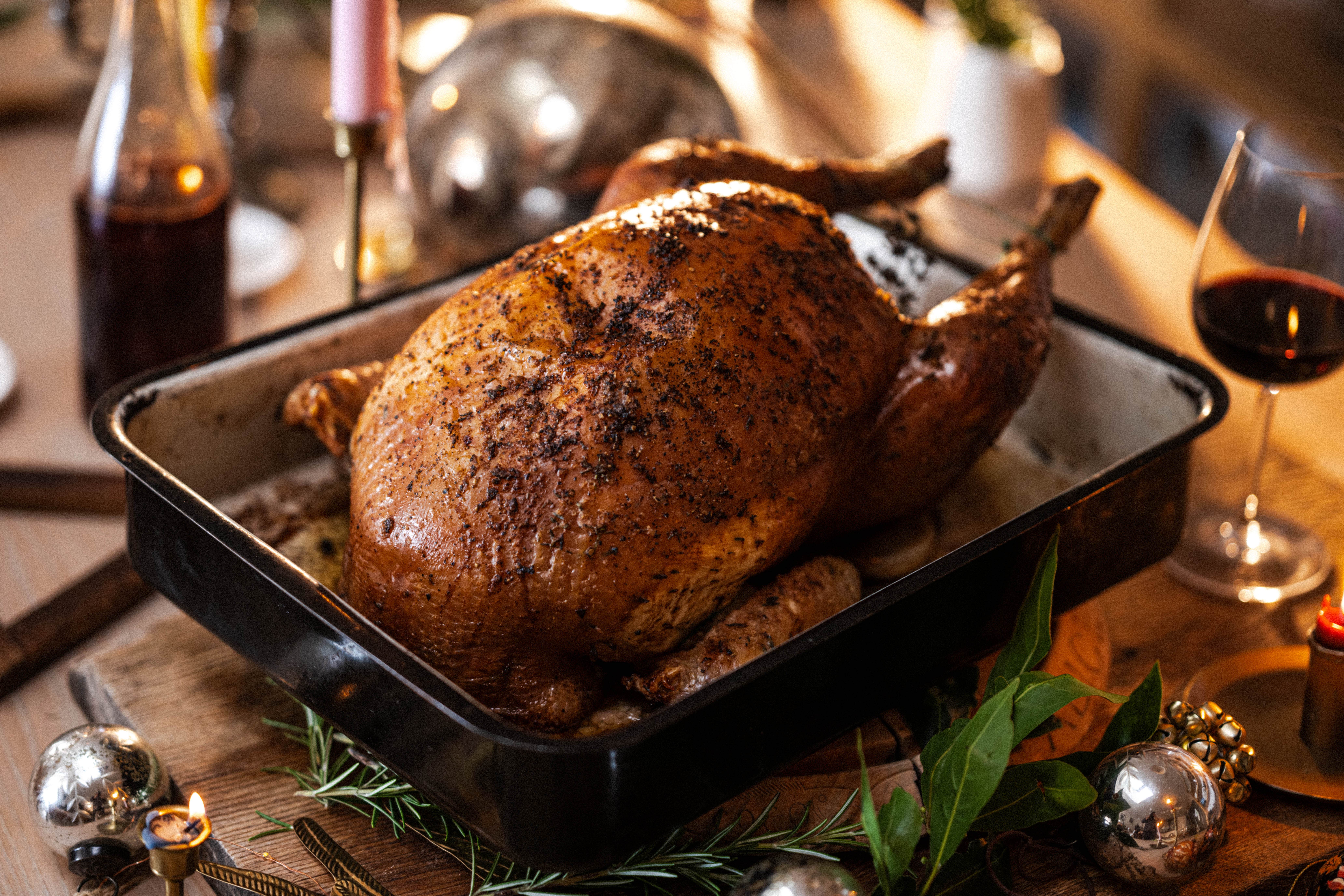Let’s face it – no one really likes turkey, do they?
It can be dry, tasteless, and worst of all, unethical. Luke Dale-Harris makes the case for ditching the obligatory bird, and replacing it with something a bit closer to home


Christmas is a holiday of sparring traditions – festive lunch or dinner? Go to church or crack on with presents and champagne? Wet walk or two hours of Macaulay Culkin?
But one convention tends to go unchallenged – when it comes to Christmas dinner, turkey rules the roost. Yet every other day of the year there’s one thing we can all agree on – no one really likes turkey.
Without wanting to go into all the reasons why turkey is environmentally problematic (Christmas guilt being another potent festive tradition we could do without), it’s worth taking a minute to consider why, if nobody’s mad about it, we continue to stay true to turkey. Surely for what is arguably the most important meal of the year, we should be eating something we can spend the proceeding dark, cold weeks getting properly excited about.
In fairness to turkey, there is something celebratory-feeling about it. The idea of a whole bird on the table – especially one as gargantuan as the turkey – still feels decadent today, even now such things are no longer the luxury they once were. Stuffed to overflowing with chestnuts, mince and herbs, and encircled by pigs in blankets like humbled subjects bowing to their portly queen, it’s a spectacle that allows every family to feel like royalty for a day.
But despite our current allegiance to it, turkey dinner is a fairly new Christmas tradition, and royalty have long drawn their festive foods from the land around them (often to obscene proportions – think Henry VIII’s Christmas pie, consisting of a bird stuffed in a bird stuffed in a bird stuffed in a bird etc).
Turkey by contrast is an American import – one of the first, bought over to Europe by Spanish conquistadors from Central America in the 16th century. A wild, near flightless and bizarre-looking bird, the wild turkey is a far cry from the domesticated animal we know today. Over the five centuries since, turkey production has mutated into the industrial meat business we are all so familiar with – birds bred for productivity over flavour, fed grains imported from halfway across the world, and so on.
There are many for whom conventional turkey production is unconscionable but, still wanting to stay true to the Christmas tradition, they shop for a high-quality bird from a decent farm. But I’d argue that turkey is fundamentally a flawed choice, and the reason comes down to flavour as much as ethics.
In fact, as with so much to do with meat, flavour and ethics are almost inseparable. Meat tastes good when it comes from an animal grown slowly in its natural environment, fed primarily on the wide diversity of forage that grows there. For ruminants – sheep, cows, deer – that means grasses, herbs and trees. For monogastrics – poultry and pigs – that means invertebrates, nuts, grasses, legumes, seeds.
This is inevitably easier for animals reared in the environment to which they evolved – hence why ruminants grow so well in the British countryside, and pigs thrive in open woodlands. But the further farmed animals get from their place of origin, and the more they are bred away from their original characteristics, the harder this becomes.
Turkey and other poultry represent the extreme end of this spectrum. Transported thousands of miles from their native environment and bred to rely on highly specialised and exotic feeds, they are an emblem of globalisation. It doesn’t really matter where the bird spends its life as its environment is brought to it in the form of heated sheds and imported food. The result (beyond all the appalling environmental connotations) is that birds grown to whatever size each Christmas party requires – simple to cook but hard to taste.
But think of the alternative. We are able to grow the most delicious beef and lamb imaginable in this country, from farms that are actively regenerating the land with animals that serve an inherent function in their ecosystems. And we have wild deer populations ballooning to the point where they are causing ridiculous levels of damage to woodlands and rewilding efforts, creating a moral obligation to eat more venison (which happens also to be an ancient Christmas tradition in this country).
To my mind, the thing that makes Christmas most wonderful is the way half the globe comes together in celebration, yet every party feels so rooted in the traditions and cultures of our own homes. Perhaps the food we eat that day should be an extension of this, linked to the landscapes we live in and a celebration of all that is beautiful.
Luke Dale-Harris is director of Farm Wilder, a social enterprise supporting farmers blurring the line between farming and rewilding
Join our commenting forum
Join thought-provoking conversations, follow other Independent readers and see their replies
Comments
Bookmark popover
Removed from bookmarks